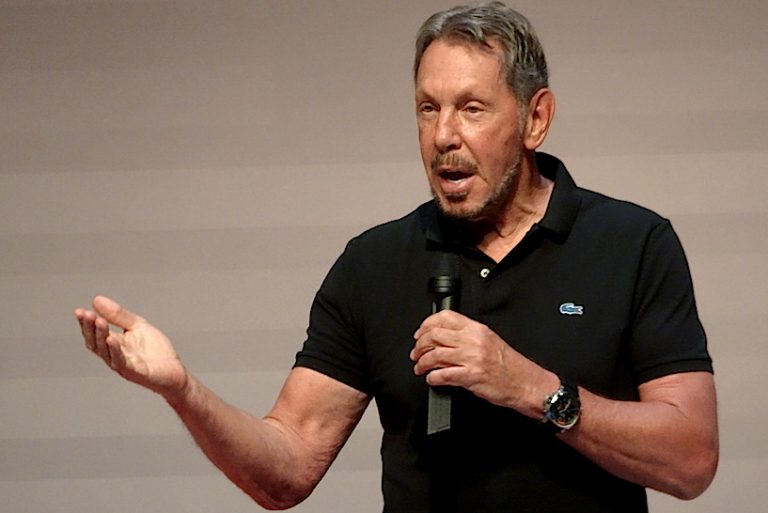OpenAI today confirmed that it has signed an agreement to purchase computing infrastructure worth $300 billion from Oracle Corp. over a period of roughly five years, as part of its previously announced Project Stargate data center building initiative.
The deal represents one of the biggest cloud contracts in history. It’s a massive commitment that far outstrips OpenAI’s current revenue, reflecting the frenzied rate of spending on artificial intelligence data centers by Silicon Valley companies.
OpenAI and Oracle will construct 4.5 gigawatts of data center compute capacity, which is roughly equivalent to the electricity produced by more than two Hoover Dams, or the amount consumed by about 4 million U.S. homes, the Wall Street Journal reported today.
The announcement came after Oracle’s stock surged by more than 42% on Wednesday after it reported adding $317 billion in future contract revenue during its latest quarter. Oracle Chief Executive Safra Catz told analysts on a conference call that her company had signed contracts with three customers, one of which we now know was OpenAI.
The first hint of the deal came in June, when Oracle said in a regulatory filing it had agreed a cloud services agreement that would generate more than $30 billion in revenue in fiscal 2027. The revenue it receives will increase with each year, as more data center infrastructure comes online. OpenAI revealed one month later that it had agreed to purchase 4.5 gigawatts of compute power from Oracle, but did not disclose the size of the contract at that time.
Project Stargate was announced at the White House in January, when OpenAI CEO Sam Altman and Oracle founder and Chief Technology Officer Larry Ellison (pictured) appeared alongside U.S. President Donald Trump, who said it was all about establishing American leadership in AI. The two partners initially pledged to build at least $100 billion worth of data centers, before expanding the effort to $500 billion in the “coming years.”
OpenAI later confirmed that Stargate is the brand for all of its data center infrastructure initiatives, but has not revealed the specifics of that pact, which also involves the technology investor SoftBank Group Corp. After announcing Stargate, OpenAI has already secured commitment for more than half of $500 billion goal, and construction is already underway at a location in Abilene, Texas.
The two companies aren’t the only big tech firms racing to build out AI data center facilities as fast as they can. Rivals that include Amazon Web Services Inc., Microsoft Corp., Google LLC and Meta Platforms Inc. have pledged to spend a combined $300 billion on building their own giant data centers this year.
But OpenAI’s and Oracle’s venture may be perceived by some as somewhat more risky. OpenAI is very far from being profitable. On the contrary, it’s bleeding cash. In June it disclosed that it’s generating approximately $10 billion in annual revenue, which is less than a fifth of the $60 billion in expenses it will pay each year on building out data centers and renting compute capacity from other data center operators.
Meanwhile, Oracle is betting a large chunk of its future revenue on just one customer. It will probably have to take on debt to fund the purchase of the AI chips needed in its planned data centers.
Altman has already committed to a number of seemingly risky ventures. His company is also reportedly working with Broadcom Inc. to develop its own custom AI chips, and trying to build a device that will compete with Apple Inc.’s iPhone. The company, which has taken billions of dollars in funding, is burning through more money than pretty much any startup in history. Last year, Altman reportedly told investors he doesn’t expect OpenAI to become profitable until 2029 at the earliest, and will likely need to spend $44 billion to get there.
As such, OpenAI’s and Oracle’s deal is a gamble that ChatGPT’s explosive growth will continue to accelerate and end up being used by billions of consumers and thousands of businesses globally. But it faces some serious competition from rivals such as Google and other AI startups such as Anthropic PBC, and it has an increasingly tense relationship with its main financial backer Microsoft.
The Journal says Oracle has a much greater debt load relative to its cash holdings than Microsoft, Amazon and Meta. Its investments on AI infrastructure have already outpaced its cash flow, and it has a total debt-to-equity ratio of 427%, compared with just 32% for Microsoft.
OpenAI and Oracle have also committed to a separate initiative that will see them build a massive data center complex in the United Arab Emirates, as part of a deal that was negotiated by Trump and that country’s government. It’s a joint venture that also involves SoftBank and the Emirati investment firm G42 and other stakeholders.
However, G42 will contribute to the financing of OpenAI’s U.S. data centers too, the deal being that for every dollar it invests in the Emirates, it will spend an equivalent amount on U.S. data centers.
Photo: Robert Hof/SiliconANGLE
Support our mission to keep content open and free by engaging with theCUBE community. Join theCUBE’s Alumni Trust Network, where technology leaders connect, share intelligence and create opportunities.
15M+ viewers of theCUBE videos, powering conversations across AI, cloud, cybersecurity and more
11.4k+ theCUBE alumni — Connect with more than 11,400 tech and business leaders shaping the future through a unique trusted-based network.
About SiliconANGLE Media
Founded by tech visionaries John Furrier and Dave Vellante, SiliconANGLE Media has built a dynamic ecosystem of industry-leading digital media brands that reach 15+ million elite tech professionals. Our new proprietary theCUBE AI Video Cloud is breaking ground in audience interaction, leveraging theCUBEai.com neural network to help technology companies make data-driven decisions and stay at the forefront of industry conversations.

